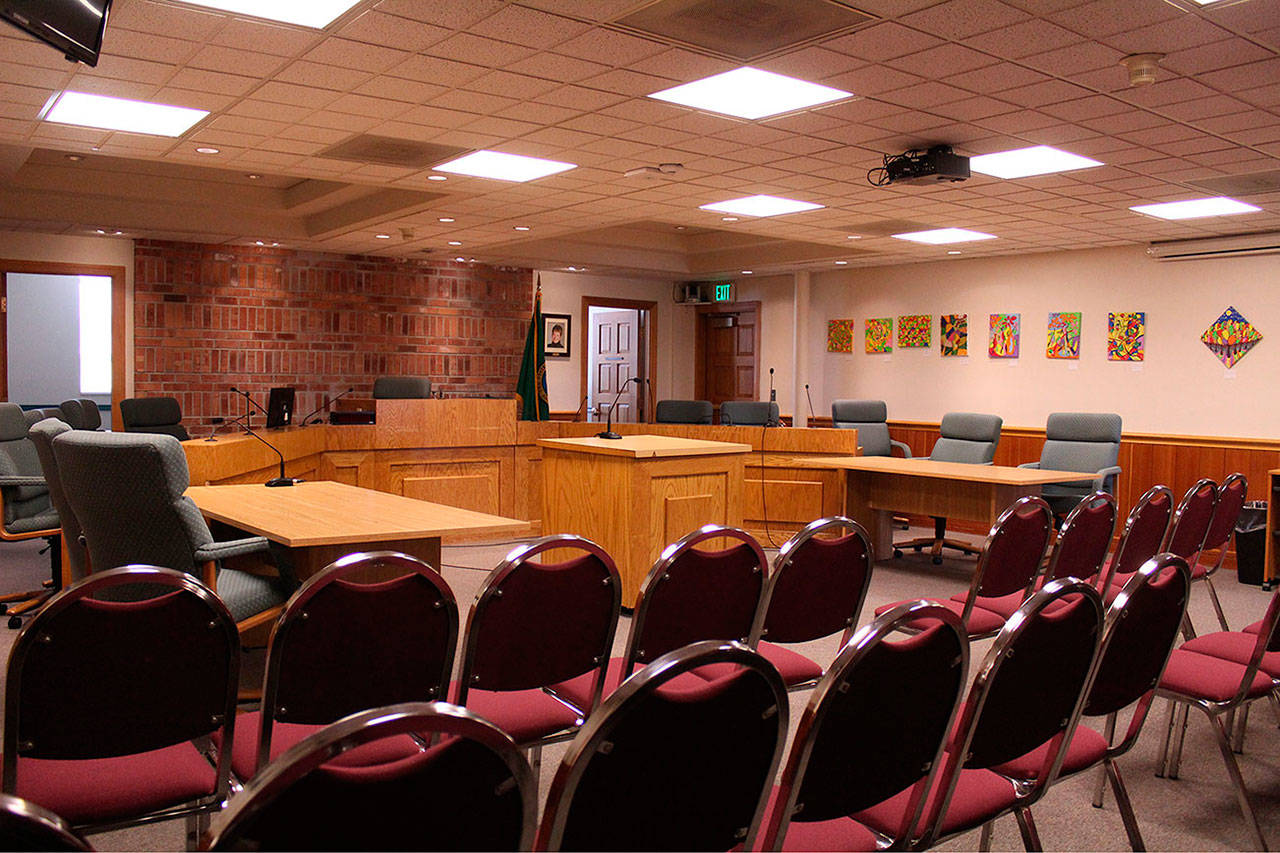Significant progress has been made on crafting a 2018 Enumclaw budget, a document that could forever change the way the city collects and disperses certain funds.
Members of the City Council passed a first draft of next year’s spending plan on Nov. 13 and included formation of a new utility that will eventually include a monthly fee for city property owners, both residential and commercial.
Creation of the new utility has been a hot topic in city circles for a couple of years, seen as a way to free up General Fund money while directing the public to pay for what has become an essential service.
Most cities and towns in the region, both large and small, have a separate utility for wastewater. The utility comes with monthly charges, just like those assessed for water, sewer and garbage collection. Enumclaw has long paid for wastewater collection and treatment through its general fund, where it competes for dollars with things like police protection, parks and recreation offerings and services for senior citizens and youth.
The plan now under way would see creation of a stormwater utility probably by August of the coming year.
Stormwater consists primarily of rainfall, but can include water from washing cars and sprinkling lawns and gardens. Essentially, it means any water that doesn’t percolate into the ground.
Because water picks up contaminants as it runs off impervious surfaces – roads, parking lots and driveways, for example – the federal Clean Water Act holds communities accountable. Taking care of wastewater will cost Enumclaw more than $400,000 during 2017.
The city maintains an inventory of 22 detention ponds, more than 18 miles of drainage ditches and approximately 3,000 catch basins, all aimed at rounding up stormwater. In the end, the water makes its way to either the White River to the south or the Green River to the north.
Costs have not been set in stone, but a rate analysis arrived at a monthly cost of $4.38 per single-family home, while businesses would pay $4.38 for every 3,200 square feet of impervious surface.
PART TWO OF THE EQUATION
Because stormwater treatment will eventually be removed from General Fund responsibility, council members also acted Nov. 13 to reduce the proposed property tax rate for 2018.
Initial budget talks floated the notion of assessing some previously unused – but legally allowed – taxing capacity. It had been determined the city might charge $1.75 for every $1,000 of assessed property value. For the owner of property valued at $350,000, that would have brought a property tax bill of $612 for 2018, or $93 more than was paid in 2017.
With the coming stormwater utility, the council agreed on a proposed rate of $1.41 instead. That equates to a $493.50 for 2018.
Everything voted upon by the council Nov. 13 was for a “first reading” only. It is expected a final vote on the 2018 budget will come Nov. 27.
PROCESS MOVED A BIT QUICKER
Enumclaw’s budget calendar typically calls for adoption of the coming year’s budget during the first meeting in December. This year, things are being pushed to the last meeting of November.
The reason: the changing face of the seven-member council.
Two present members of the city’s governing body were appointed during 2017 and, due to that status, had to run for election Nov. 7. The election will not be certified until next week, but it appears both Steve Cadematori and Anthony Wright will be replaced by their challengers. Because they had been appointed to council seats, their replacements – Tony Binion and Kael Johnson, respectively – will take office in December.
City administration felt it is appropriate that the 2018 budget be adopted by those who worked through the entire process. Thus, adoption is coming two weeks earlier than normal.


